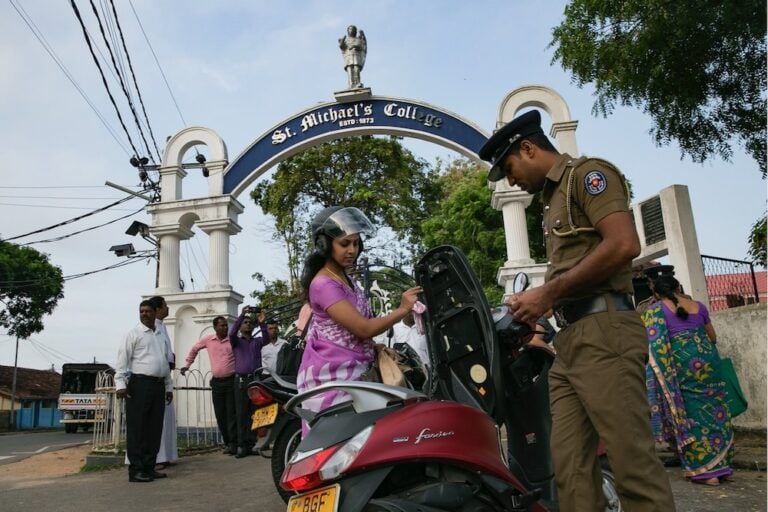(RSF/IFEX) – On 7 November 2002, RSF criticised the Sri Lankan government’s refusal to renew Paul Harris’s visa. The journalist from the British newspaper “The Daily Telegraph” is being forced to leave the country after becoming the target of an intimidation campaign. The organisation expressed its regret that the authorities had offered no explanation for […]
(RSF/IFEX) – On 7 November 2002, RSF criticised the Sri Lankan government’s refusal to renew Paul Harris’s visa. The journalist from the British newspaper “The Daily Telegraph” is being forced to leave the country after becoming the target of an intimidation campaign.
The organisation expressed its regret that the authorities had offered no explanation for the refusal to renew Harris’s visa, and urged Foreign Minister Tyronne Fernando to reconsider the decision without delay. Harris, who is also the correspondent in Sri Lanka for the geopolitical magazine “Jane’s Intelligence Review”, said he was leaving the country on 8 November on the advice of the British embassy.
He has worked in Sri Lanka since November 2001 and had routinely applied for an annual visa renewal on 30 September 2002. The government did not respond to his request and has since refused to provide an explanation. Harris told RSF that he was being targeted for his critical reporting of peace negotiations between the government and the Tamil Tiger separatists, who he believes may have pressured the government not to renew his visa.
Harris was asked to speak publicly to opposition members of parliament after he wrote an article in “Jane’s Intelligence Review” in May. A government minister, Rajitha Senaratne, subsequently accused him of being an “agent of the British MI5 intelligence service.” One week later, the government ordered a secret investigation of him, Harris said. Staff at his hotel were questioned, his room was searched and his movements were closely watched. He was also intimidated and harassed by armed men in the past week.


